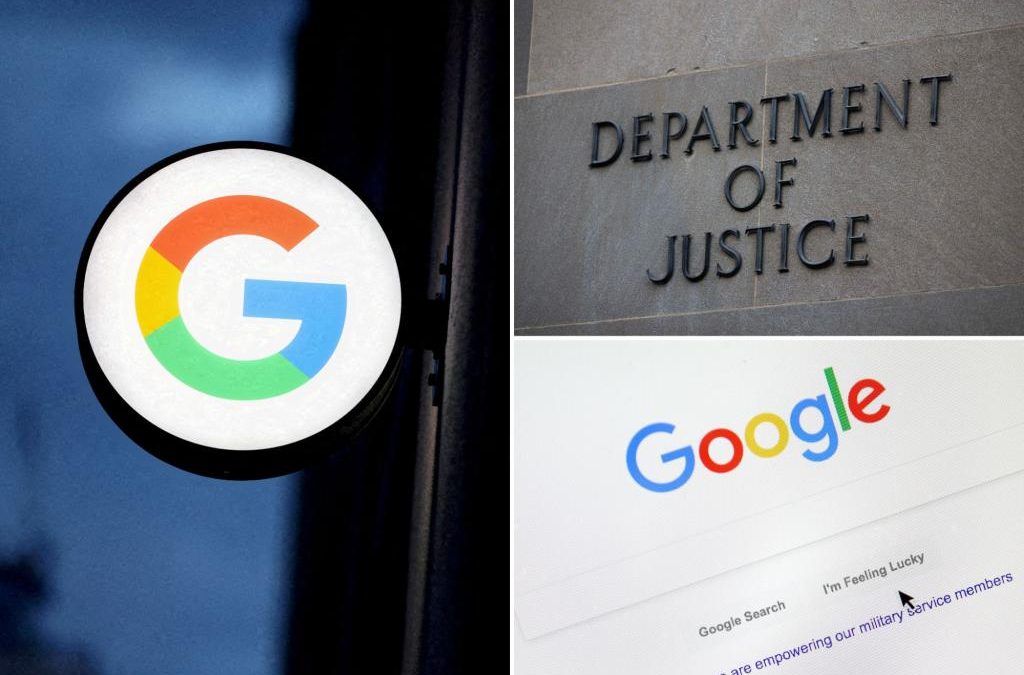A federal judge struck down parts of an antitrust lawsuit brought against Google’s parent company Alphabet by state attorneys general who allege the search giant abused its competitive advantage to harm rivals.
US District Judge Amit Mehta said in his ruling, unsealed Friday, that attorneys general of Colorado and 37 other states who sued Alphabet for allegedly monopolizing the internet search and advertising markets failed to show the company damaged rivals like Yelp and Expedia.
Mehta ruled that the states’ allegation pertaining to search results “relies not on evidence but almost entirely on the opinion and speculation of its expert.”
“Simply put, there is no record evidence of anticompetitive harm,” the judge wrote.
Mehta, who was appointed to the DC federal court by Barack Obama, did allow the states and the Justice Department to proceed with sueing Google over contracts that it signed with Apple, Mozilla, and smartphone makers that preloaded its search engine into the devices, potentially stifling competition.
The antitrust case is set to go to trial on Sept. 12.
“We appreciate the Court’s careful consideration and decision to dismiss claims regarding the design of Google Search,” said Kent Walker, Google’s president of global affairs & chief legal officer. “We look forward to showing at trial that promoting and distributing our services is both legal and pro-competitive.”
News of Mehta’s ruling was reported by Bloomberg News.
The crux of the case against Google alleges that the company used “exclusionary agreements” that denied their competitors access to search distribution.
Google is being accused of making deals with device manufacturers that require its search engine to be the default option on most mobile device while locking out rivals such as Microsoft’s Bing and DuckDuckGo.
Several antitrust lawsuits have been filed against Google in the US and Europe since 2020.

In January, the Justice Department partnered with eight states to file suit against Google for allegedly monopolizing the digital advertising market.
“Google abuses its monopoly power to disadvantage website publishers and advertisers who dare to use competing ad tech products in a search for higher quality, or lower cost, matches,” the Justice Department said in its 149-page complaint filed in Virginia federal court.
Google responded to the lawsuit, saying the government was “doubling down on a flawed argument that would slow innovation, raise advertising fees, and make it harder for thousands of small businesses and publishers to grow.”
Last year, Texas, Indiana, Washington State, and the District of Columbia sued Google over what they alleged was deceptive location-tracking practices that invade users’ privacy.
Dozens of other states signed on to the lawsuit. Google eventually agreed to settle with 40 states by paying out $391.5 million.

In June, European Union regulators said Google may have to sell part of its lucrative adtech business to address concerns about anti-competitive practices.
The European Commission set out its charges in a statement of objections to Google two years after opening an investigation into its business practices such as favoring its own advertising services, which could also lead to a fine of as much as 10% of Google’s annual global turnover.
Google said it disagreed with the Commission’s charge.
“The Commission’s investigation focuses on a narrow aspect of our advertising business and is not new. We disagree with the EC’s view,” Dan Taylor, Google’s vice president of global ads, said in a statement.
With Post Wires
Source




